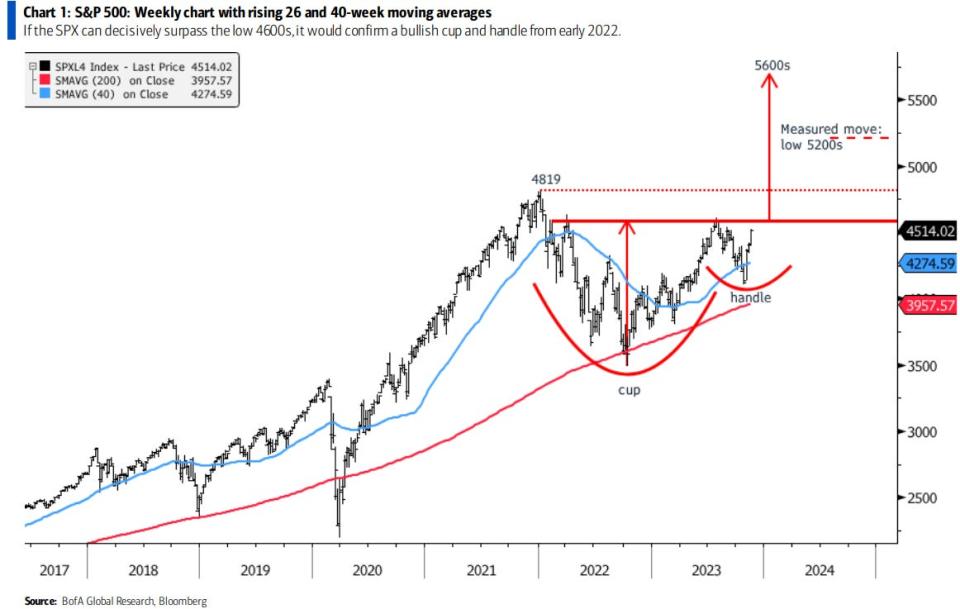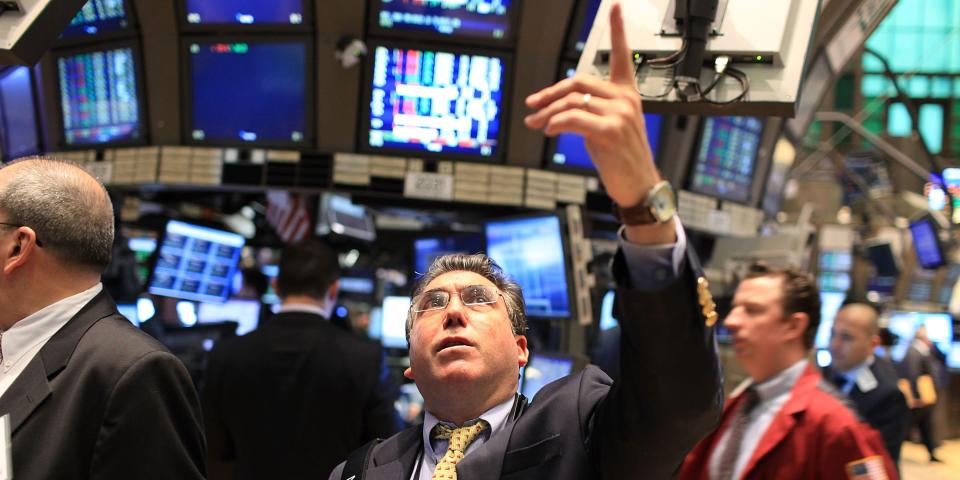The stock market could have 23% upside if a key technical level is breached, according to Bank of America.
BofA analyst Stephen Suttmeier said a decisive break above 4,600 for the S&P 500 would confirm a bullish chart pattern.
“Rising 40-week and 200-week moving averages underpin this bullish longer-term technical setup.”
A continuation of bullish technical trends in the stock market could catapult the S&P 500 higher by as much as 23% from current levels, according to Bank of America.
Bank of America’s technical research strategist Stephen Suttmeier said in a note last week that if the S&P 500 can decisively break above the low 4,600s, a so-called cup and handle would be confirmed. The S&P 500 traded just above 4,550 on Monday.
A cup and handle is a bullish pattern that resembles a cup on a chart, formed by a basing pattern that typically looks like a “U,” followed by a handle that is formed by a short-term downtrend. Once a break above the handle occurs, a price target can come into play. This pattern usually extends an uptrend that is already in place.
According to Suttmeier, the cup-and-handle pattern forming in the S&P 500 signals more potential upside for the index, “with upside potential beyond the all-time high at 4,819 toward a measured move in the low 5,200s and the big base pattern count in the 5,600s.”

All three of those short-, medium-, and long-term price objectives would represent record all-time highs for the S&P 500, which topped out at around 4,800 in the first week of January 2022.
In favor of the technical breakout for stocks is the fact that the S&P 500’s long-term moving averages are heading higher. “Rising 40-week and 200-week moving averages underpin this bullish longer-term technical setup,” Suttmeier said.
He also highlighted that bullish cup-and-handle formations are also taking shape in the Nasdaq Composite as well as the technology, semiconductor, and homebuilders sectors, suggesting improving market participation.
To fuel the potential stock market upside, Suttmeier said asset managers have plenty of buying power left.
“After institutional asset managers added to net longs in S&P 500 e-mini futures on the FOMO (fear of missing out) summer rally, they curbed their enthusiasm and reduced net longs on the fall dip. This provides asset managers with some buying power for a year end rally, which tends to be strong in Presidential Cycle Year,” Suttmeier explained.
Asset managers aren’t the only ones who have a lot of buying power. Retail investors have poured hundreds of billions of dollars into cash this year, bringing total money market assets held by retail to a record $1.62 trillion.
Read the original article on Business Insider
Credit: Source link




